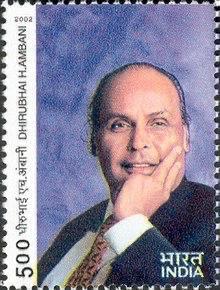Saturday, December 28, 2024
Central Reserve Police Force came into being in 1949
Sumitranandan Pant's Death Anniversary
Dhirubhai Ambani's Birth Anniversary
Dhirubhai Ambani, born
on 28 December 1932, was an Indian business tycoon who founded Reliance
Industries in Bombay and appeared in The Sunday Times top 50 businessmen in
Asia. Ambani took Reliance public in 1977 and was worth $25.6 billion upon his
death on 6 July 2002. In 2016, he was honored posthumously with the Padma
Vibhushan, India's second highest civilian honour for his contributions to
trade and industry.
First session of the Indian National Congress was held in 1885
The first session of the
Indian National Congress was held on 28 December 1885 in Bombay. The initial
name of the organization was Indian National Union.
The Indian National Congress
conducted its first session in Bombay from 28 to 31 December 1885 at the
initiative of retired Civil Service officer Allan Octavian Hume. In 1883, Hume
had outlined his idea for a body representing Indian interests in an open
letter to graduates of the University of Calcutta. It aimed to obtain a greater
share in government for educated Indians and to create a platform for civic and
political dialogue between them and the British Raj. Hume took the initiative,
and in March 1885 a notice convening the first meeting of the Indian National
Union to be held in Poona the following December was issued. However due to a
cholera outbreak there, it was moved to Bombay.
Hume organized the first
meeting in Bombay with the approval of the Viceroy Lord Dufferin. Umesh Chandra
Banerjee was the first president of Congress; the first session was attended by
72 delegates, representing each province of India. Notable representatives
included Scottish ICS officer William Wedderburn, Dadabhai Naoroji, Pherozeshah
Mehta of the Bombay Presidency Association, Ganesh Vasudeo Joshi of the Poona
Sarvajanik Sabha, social reformer and newspaper editor Gopal Ganesh Agarkar,
Justice K. T. Telang, N. G. Chandavarkar, Dinshaw Wacha, Behramji Malabari,
journalist, and activist Gooty Kesava Pillai, and P. Rangaiah Naidu of the
Madras Mahajana Sabha. This small elite group, unrepresentative of the Indian
masses at the time, functioned more as a stage for elite Indian ambitions than
a political party for the first decade of its existence.
World Protein Day
World Protein Day is celebrated on February 27th every year. It is a worldwide celebration to mark the importance of protein in our diet ...

-
World Meerkat Day is celebrated annually on July 3rd to raise awareness about meerkats and promote their conservation. Significance of ...
-
Puffin Day, celebrated annually on April 14th, is a day dedicated to the colourful and charming puffin seabird. It highlights their unique ...
-
India is celebrating its maiden National Space Day today on August 23, 2024, on the one-year anniversary of the successful moon landing o...






